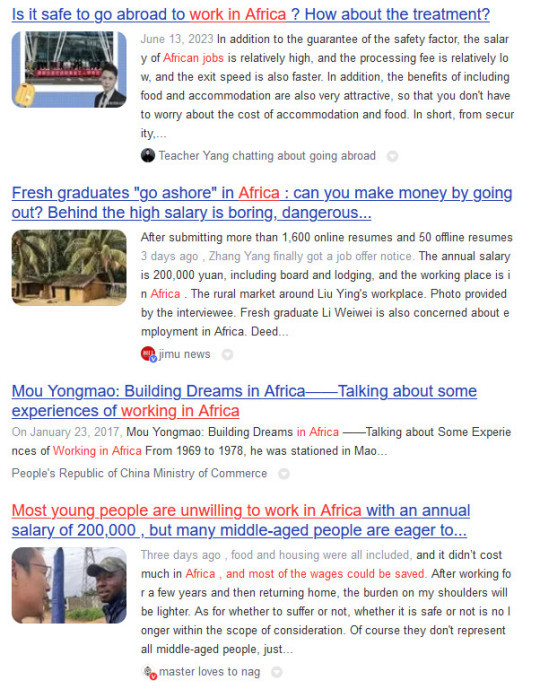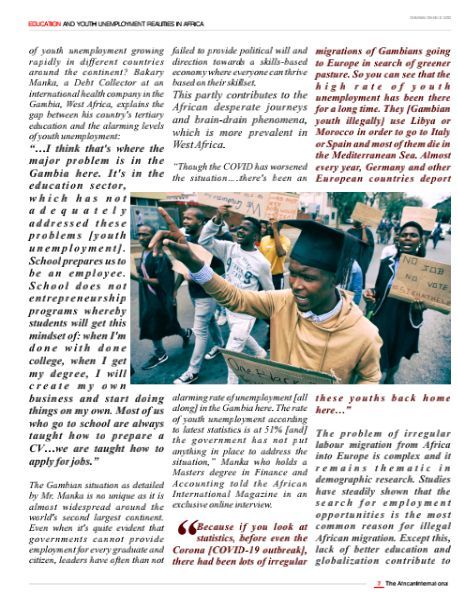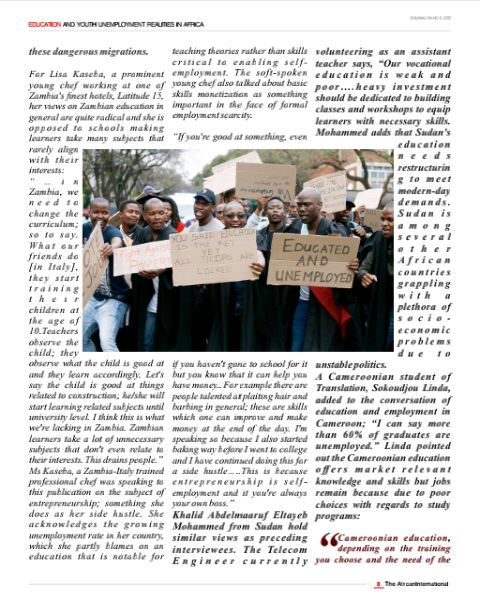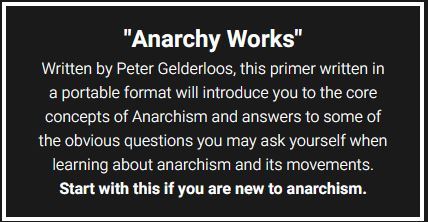#africa unemployment
Photo

Repost from @ Thekgase Kobe who volunteers his time in the Rondebult Community, Ekurhuleni. Thekgase has been a selfless volunteer with Hope SA Foundation since 2020. Community comes first. Today 7th March 2023 Ward 41 Ekurhuleni community enjoyed a delicious hot meal made at Thava Indian Restaurant and special treat of Danone UltraMel 1l custard. Hope SA Foundation Together With Namritha Sivsanker, Always Supporting Ward 41 with cooked food,vegetables,kids toys also supporting women with sanitary towels. Modimo Ke Woooooo Namritha 👏👏👏👏❤️❤️❤️❤️.We managed to feed 200 community members today👏👏👏❤️❤️ Thank you for your contributions and support. Hope SA Foundation feeds communities of all races and religion. Please support our Poverty alleviation Drives and donate at www.hopesa.org #food #poverty #africa #southafrica #unemployment #EconomicChallenges #ngo #donate #wef #wfp #un #sdgs World Food Programme #HopeSA #hope https://www.instagram.com/p/Cpf1RIQK6Cm/?igshid=NGJjMDIxMWI=
#food#poverty#africa#southafrica#unemployment#economicchallenges#ngo#donate#wef#wfp#un#sdgs#hopesa#hope
9 notes
·
View notes
Text
Hello Tumblr people, someone just reached out to me about their financial situation. They live in The Gambia, West Africa.
This is them here

They gave permission for me to show them and their siblings
They just lost their job and they need money to feed their siblings, they don't have enough food or clean water. As you can see they have many so please give as much as you can
They are using this link -
https://www.moneygram.com/mgo/us/en/
This is the information they sent for this in this format.
ABDOULIE FATTY
THE GAMBIA
WEST AFRICA
BRIKAMA BRANCH
I personally do not know how these work but I hope you'll spare some for them.
#moneygram#help needed#urgent help needed#help them#they need money#I need money#please help them#in trouble#pls help#help plz#help help help#mutual aid#financial assistance#please help if you can#west africa#africa#gambia#job loss#unemployed people#unemployment#africans#african family#support bipoc#bipoc mutual aid#bipoc#help bipoc#signal boost
2 notes
·
View notes
Text
Entrepreneurship is a solution to the high rate of youth unemployment’ – Economist
By Nomfundo Cele

Sphesihle Shabalala, Entrepreneur. Image:supplied
South Africa's unemployment rate rose to the highest on a global list of 82 countries recorded by Bloomberg last year. Unemployment continues to severely impact young people, with nearly two-thirds of those aged 15 to 24 unemployed and 42.9 percent of those aged 25 to 34 unemployed (Marwala 2022).
https://www.dailymaverick.co.za/opinionista/2022-02-15-youth-unemployment-is-a-national-crisis-government-must-eliminate-corruption-and-promote-investment-to-address-it/
With more than two out of every five young people unemployed and few to no prospects for formal employment after a year of Covid-19, South Africa's only option is to encourage entrepreneurship among our youth (Fotoyi 2021).
Sphesihle Reginald Shabalala is a 26-year-old entrepreneur from KwaDabeka, a township in the north-west of Durban. While still in high school, he founded his own production business.
“I’ve always had a passion for acting and camera works, and from a young age, I would give my services at school events, and that’s when I realized that beyond high school, it is what I wanted to pursue,” Shabalala said.
Weddings, graduation celebrations, funerals, and picture sessions are among the services provided by the production company. Shabalala is not only in the production industry ; he recently launched a restaurant/bar in Clermont called The Rooftop, which is open every day but usually packed on weekends.
I had the pleasure of conducting an interview with Shabalala in his elegant outdoor bar, which was decorated in green and white and boasted a spectacular view over Clermont Township. He embraced me with a big smile and was kind enough to offer me something to drink, demonstrating his humanity and generosity, as mentioned by his employees.
“I’m grateful to Sphesihle for providing job opportunities for people like us, the youth, and what I admire about him is that he treats us like his siblings rather than his employees. He is a very calm and nice person who will never abandon you if you need help,” said a waitress at The Rooftop.
He said that he believes his satisfaction and goal-oriented mindset stems from seeing people pleased when he hires them. “There is nothing more satisfying than providing a job opportunity to someone who has been looking for a job for over 5 years with no luck of finding it, I sleep better at night knowing that although I may not be able to provide a job opportunity for everyone but at least a few people are able to put food on the table for their families because of a job creation I created,” Shabalala said with a bright smile on his face.
He points out that establishing a business, especially at a young age, is not easy and that there are numerous obstacles to overcome. He said that his greatest challenge was not receiving the support he expected from close friends and family, but he is grateful to those who supported him, and he said that he believes that having a solid support system is critical when establishing any type of business.
3 notes
·
View notes
Text
2023: PRC College Grads Seek Jobs in Africa
With unemployment among recent college graduates rising in China, some of the more adventurous graduates are looking for jobs with Chinese companies or merchants in Africa.
The Chinese Communist Youth League‘s newspaper China Youth Daily reports. Looking at unconventional job choices clearly better than ‘lying flat’. Here the story of Tang Qi who found a job as a Chinese-French translator for a…

View On WordPress
#Africa#business#China#Chinese#college graduate#company#employment#job hunt#job search#lying flat#students#translator#unemployment#young people#Youth#中国
0 notes
Text
The New African Diaspora in the Middle East
Like genocide, the diaspora has no clear definition, that’s how serious the concept is. They are types or forms of diaspora and we are going to figure out together which one suits this specific blog post. We shall start with the victim diaspora which is made up of those forced into exile and to some extent defines Africans who are in the middle east since they are economic exiles. They are also,…

View On WordPress
#Africa#capitalism#depression#diaspora#economy#education#ethnicity#government#human trafficking#labor#Middle East#nationalism#nepotism#Politics#Slave trade#tribalism#Uganda#underemployed#unemployment#works
0 notes
Text
EDUCATION AND YOUTH UNEMPLOYMENT REALITIES IN AFRICA
With the youth accounting for over 60% of Africa’s population, the continent has overwhelming potential for development and economic growth. In the context of population dynamism, Africa’s burgeoning young population reflects member countries’ potential for increased production and active participation in various economic and developmental activities. Regardless, this young population remains merely a recipient of human development infrastructure, including higher education while development reports continue to criticize Africa as a whole for its unsustainable demographic growth. African youth population is steadily growing with a projection that it will constitute 42% of global youth by 2030. This is a great cause for concern on the part of policymakers as population growth means more spending on food security and healthcare in the face of a youth Unemployment approaching crisis proportions.
With the whole wide world recovering from the sweeping ripple effects of the COVID-19 pandemic, Africa has been working to equip the youth for an increasingly evolving local and international labour markets. Now more than ever, tertiary education is the front and centre of everyone’s personal development and the continent at large. But there comes a million dollar question: Is tertiary education in Africa alive to the realities of youth unemployment growing rapidly in different countries around the continent? Bakary Manka, a Debt Collector at an international health company in the Gambia, West Africa, explains the gap between his country’s tertiary education and the alarming levels of youth unemployment:
“…I think that’s where the major problem is in the Gambia here. It’s in the education sector, which has not adequately addressed these problems [youth unemployment]. School prepares us to be an employee. School does not entrepreneurship programs whereby students will get this mindset of: when I’m done with done college, when I get my degree, I will create my own business and start doing things on my own. Most of us who go to school are always taught how to prepare a CV…we are taught how to apply for jobs.”
The Gambian situation as detailed by Mr. Manka is no unique as it is almost widespread around the world’s second largest continent. Even when it’s quite evident that governments cannot provide employment for every graduate and citizen, leaders have often than not failed to provide political will and direction towards a skills-based economy where everyone can thrive based on their skillset. This partly contributes to the African desperate journeys and brain-drain phenomena, which is more prevalent in West Africa.
“Though the COVID has worsened the situation….there’s been an alarming rate of unemployment [all along] in the Gambia here. The rate of youth unemployment according to latest statistics is at 51% [and] the government has not put anything in place to address the situation,” Manka who holds a Masters degree in Finance and Accounting told the African International Magazine in an exclusive online interview.
“Because if you look at statistics, before even the Corona [COVID-19 outbreak], there had been lots of irregular migrations of Gambians going to Europe in search of greener pasture. So you can see that the high rate of youth unemployment has been there for a long time. They [Gambian youth illegally] use Libya or Morocco in order to go to Italy or Spain and most of them die in the Mediterranean Sea. Almost every year, Germany and other European countries deport these youths back home here…”
The problem of irregular labour migration from Africa into Europe is complex and it remains thematic in demographic research. Studies have steadily shown that the search for employment opportunities is the most common reason for illegal African migration. Except this, lack of better education and globalization contribute to these dangerous migrations.
For Lisa Kaseba, a prominent young chef working at one of Zambia’s finest hotels, Latitude 15, her views on Zambian education in general are quite radical and she is opposed to schools making learners take many subjects that rarely align with their interests:
“…in Zambia, we need to change the curriculum; so to say. What our friends do [in Italy], they start training their children at the age of 10.Teachers observe the child; they observe what the child is good at and they learn accordingly. Let’s say the child is good at things related to construction; he/she will start learning related subjects until university level. I think this is what we’re lacking in Zambia. Zambian learners take a lot of unnecessary subjects that don’t even relate to their interests. This drains people.”
Ms Kaseba, a Zambia-Italy trained professional chef was speaking to this publication on the subject of entrepreneurship; something she does as her side hustle. She acknowledges the growing unemployment rate in her country, which she partly blames on an education that is notable for teaching theories rather than skills critical to enabling self-employment. The soft-spoken young chef also talked about basic skills monetization as something important in the face of formal employment scarcity.
“If you’re good at something, even if you haven’t gone to school for it but you know that it can help you have money.. For example there are people talented at plaiting hair and barbing in general; these are skills which one can improve and make money at the end of the day. I’m speaking so because I also started baking way before I went to college and I have continued doing this for a side hustle…..This is because entrepreneurship is self-employment and it you’re always your own boss.”
Khalid Abdelmaaruf Eltayeb Mohammed from Sudan hold similar views as preceding interviewees. The Telecom Engineer currently volunteering as an assistant teacher says, “Our vocational education is weak and poor….heavy investment should be dedicated to building classes and workshops to equip learners with necessary skills. Mohammed adds that Sudan’s education needs restructuring to meet modern-day demands. Sudan is among several other African countries grappling with a plethora of socio-economic problems due to unstable politics.
A Cameroonian student of Translation, Sokoudjou Linda, added to the conversation of education and employment in Cameroon; “I can say more than 60% of graduates are unemployed.” Linda pointed out the Cameroonian education offers market relevant knowledge and skills but jobs remain because due to poor choices with regards to study programs:
“Cameroonian education, depending on the training you choose and the need of the market, gives relevant skills for survival even without formal employment……. For example, in Cameroon we have many students choosing philosophy; but the country does not really need many specialists in that domain.”
The consensus on modern African education clearly leans towards technical skills and entrepreneurship. Manka ably explained what the Gambia ought to do to address youth unemployment and stimulate socio-economic development. His views would still apply almost everywhere in Africa.
“There is need to promote entrepreneurship skills through putting few administrative laws and introduce tax breaks for small businesses. Let’s say you’re small business owner and you won’t pay tax for five years,” Manka added.
Linda holds a similar view and acknowledged the fact that many Cameroonian youths would want to venture in entrepreneurship and business but the environment is not favourable and access to finance still remains low among young people:
“Government should try to create favourable conditions for youths to develop business in their country and even receive some assistance.”
Given these realities around education and employment in Africa, it is important for governments and scholars around the continent to rethink education and have it tailored according to problems facing us. As Manka appealed, “Our education should teach more on African realities…We have a lot problems here. We need to learn how to solve our problems.” Africa needs an education that will radically provoke innovation and creativity among its youth because times have significantly changed and the ground beneath our feet has shifted.





#magazine#africa#panafrican#social media#my writing#afrique#african politics#afrofuturism#art#artists on tumblr#unemployment#dual pov#low angle pov#pov#viral photo#what the fuck#whattoread#what if#anime memes#graphics cards#african writers#seri pixel biologist#serious talk#dead serious#community#lifestyle blog#life stuff
0 notes
Text
Thousands protest in South Africa over rising cost of living, unemployment
Thousands protest in South Africa over rising cost of living, unemployment
JOHANNESBURG
Thousands of South Africans Wednesday marched to the streets to protest against the rising cost of living and unemployment in the continent’s most industrialized economy.
The protests are being led by two major trade unions calling on the government to address the rising fuel prices, increased rolling power cuts, job cuts and unemployment among other issues.
“The decision to hold a…
View On WordPress
#Africa#Anadolu Agency#cost#cost of living#living#Protest#rising#South#South Africa protest#thousands#unemployment
0 notes
Text
A shop owned by a Black woman in a small town in France received this message.

Translation:
“Hello,
The concept and the idea are interesting for our small town and its people, we’re not saying anything about the fact a Black woman owns the place, she is in the clear as long as she comes from our land and not from Africa. But an Arab? An Arab at the front desk? An Arab everywhere? We’re fed up!! Isn’t there enough Viarmois (name of the people of the town) ? Unemployment is high for our beloved French people and you hire an Arab?
Its simple chores are for Arabs! Cleaning up…
That’s it!
Fire your employee if you don’t want us to make a petition against you!!
She is at the front desk on top of it she isn’t even presentable. Not even a tiny bit pretty!
PS: Hair straighter exists, frizzy/curly hair are not a French thing.”
The comment about the frizzy/curly hair shows that the “Arab” employee is not even a hijabi. So she is playing by their rules. She has a job, she doesn’t wear the hijab but because she is an Arab this person is trying to get her fired. If the shop owner wasn’t a Black woman this could get the Arab woman fired luckily she knows what racism is so she politely sent the racists off.
Anyway to the racists who will see this and comment as usual: I hope you choke in your sleep that will mean one less piece of shit on this planet and it will be one step closer to making this world a better place,
438 notes
·
View notes
Text
A taxonomy of corporate bullshit

Next Tuesday (Oct 31) at 10hPT, the Internet Archive is livestreaming my presentation on my recent book, The Internet Con.

There are six lies that corporations have told since time immemorial, and Nick Hanauer, Joan Walsh and Donald Cohen's new book Corporate Bullsht: Exposing the Lies and Half-Truths That Protect Profit, Power, and Wealth in America* provides an essential taxonomy of this dirty six:
https://thenewpress.com/books/corporate-bullsht
In his review for The American Prospect, David Dayen summarizes how these six lies "offer a civic-minded, reasonable-sounding justification for positions that in fact are motivated entirely by self-interest":
https://prospect.org/culture/books/2023-10-27-lies-my-corporation-told-me-hanauer-walsh-cohen-review/
I. Pure denial
As far back as the slave trade, corporate apologists and mouthpieces have led by asserting that true things are false, and vice-versa. In 1837, John Calhoun asserted that "Never before has the black race of Central Africa, from the dawn of history to the present day, attained a condition so civilized and so improved, not only physically, but morally and intellectually." George Fitzhugh called enslaved Africans in America "the freest people in the world."
This tactic never went away. Children sent to work in factories are "perfectly happy." Polluted water is "purer than the water that came from the river before we used it." Poor families "don't really exist." Pesticides don't lead to "illness or death." Climate change is "beneficial." Lead "helps guard your health."
II. Markets can solve problems, governments can't
Alan Greenspan made a career out of blithely asserting that markets self-correct. It was only after the world economy imploded in 2008 that he admitted that his doctrine had a "flaw":
https://www.pbs.org/newshour/show/greenspan-admits-flaw-to-congress-predicts-more-economic-problems
No matter how serious a problem is, the market will fix it. In 1973, the US Chamber of Commerce railed against safety regulations, because "safety is good business," and could be left to the market. If unsafe products persist in the market, it's because consumers choose to trade safety off "for a lower price tag" (Chamber spox Laurence Kraus). Racism can't be corrected with anti-discrimination laws. It's only when "the market" realizes that racism is bad for business that it will finally be abolished.
III. Consumers and workers are to blame
In 1946, the National Coal Association blamed rampant deaths and maimings in the country's coal-mines on "carelessness on the part of men." In 2003, the National Restaurant Association sang the same tune, condemning nutritional labels because "there are not good or bad foods. There are good and bad diets." Reagan's interior secretary Donald Hodel counseled personal responsibility to address a thinning ozone layer: "people who don’t stand out in the sun—it doesn’t affect them."
IV. Government cures are always worse than the disease
Lee Iacocca called 1970's Clean Air Act "a threat to the entire American economy and to every person in America." Every labor and consumer protection before and since has been damned as a plague on American jobs and prosperity. The incentive to work can't survive Social Security, welfare or unemployment insurance. Minimum wages kill jobs, etc etc.
V. Helping people only hurts them
Medicare will "destroy private initiative for our aged to protect themselves with insurance" (Republican Senator Milward Simpson, 1965). Covid relief is unfair to people that are currently in the workforce" (Republican Governor Brian Kemp, 2021). Welfare produces "learned helplessness."
VI. Everyone who disagrees with me is a socialist
Grover Cleveland's 2% on top incomes is "communistic warfare against rights of property" (NY Tribune, 1895). "Socialized medicine" will leave "our children and our children’s children [asking] what it once was like in America when men were free" (Reagan, 1961).
Everything is "socialism": anti-child labor laws, Social Security, minimum wages, family and medical leave. Even fascism is socialism! In 1938, the National Association of Manufacturers called labor rights "communism, bolshevism, fascism, and Nazism."
As Dayen says, it's refreshing to see how the right hasn't had an original idea in 150 years, and simply relies on repeating the same nonsense with minor updates. Right wing ideological innovation consists of finding new ways to say, "actually, your boss is right."
The left's great curse is object permanence: the ability to remember things, like the fact that it used to be possible for a worker to support a family of five on a single income, or that the economy once experienced decades of growth with a 90%+ top rate of income tax (other things the left manages to remember: the "intelligence community" are sociopathic monsters, not Trump-slaying heroes).
When the business lobby rails against long-overdue antitrust action against Amazon and Google, object permanence puts it all in perspective. The talking points about this being job-destroying socialism are the same warmed-over nonsense used to defend rail-barons and Rockefeller. "If you don't like it, shop elsewhere," has been the corporate apologist's line since slavery times.
As Dayen says, Corporate Bullshit is a "reference book for conservative debating points, in an attempt to rob them of their rhetorical power." It will be out on Halloween:
https://bookshop.org/a/54985/9781620977514

If you'd like an essay-formatted version of this post to read or share, here's a link to it on pluralistic.net, my surveillance-free, ad-free, tracker-free blog:
https://pluralistic.net/2023/10/27/six-sells/#youre-holding-it-wrong
#pluralistic#corporate bullshit#lies#books#reviews#taxonomies#labor#denialism#consumerism#Nick Hanauer#Joan Walsh#Donald Cohen#history#object permanence#taking the right seriously
835 notes
·
View notes
Photo

On this day, 8 April 2013, former Conservative prime minister Margaret Thatcher died. Street parties broke out across the UK, particularly in working class areas and in former mining communities which were ravaged by her policies. Her legacy is best remembered for her destruction of the British workers' movement, after the defeat of the miners' strike of 1984-85. This enabled the drastic increase of economic inequality and unemployment in the 1980s. Her government also slashed social housing, helping to create the situation today where it is unavailable for most people, and private property prices are mostly unaffordable for the young. Thatcher also complained that children were "being cheated of a sound start in life" by being taught that "they have an inalienable right to be gay", so she introduced the vicious section 28 law prohibiting teaching of homosexuality as acceptable. Abroad, Thatcher was a powerful advocate for racism, advising the Australian foreign minister to beware of Asians, else his country would "end up like Fiji, where the Indian migrants have taken over". She hosted apartheid South Africa's head of state, while denouncing the African National Congress as a "typical terrorist organisation". Chilean dictator general Augusto Pinochet, responsible for the rape, murder and torture of tens of thousands of people, was a close personal friend. Back in Britain, she protected numerous politicians accused of paedophilia including Sir Peter Hayman, and MPs Peter Morrison and Cyril Smith. She also lobbied for her friend, serial child abuser Jimmy Savile, to be knighted despite being warned about his behaviour. Margaret Thatcher was eventually forced to step down after the defeat of her hated poll tax by a mass non-payment campaign. Pictured: Jimmy Savile welcoming Thatcher to hell, reportedly. Learn more about the great miners' strike of 1984-5 in our podcast series: https://workingclasshistory.com/tag/1984-5-miners-strike/ https://www.facebook.com/photo.php?fbid=605239344982618&set=a.602588028581083&type=3
1K notes
·
View notes
Text
literally what do you expect the palestinian people to do? they live in an open air prison with a 70% unemployment rate. over 6000 palestinians have died in the past 10 years of conflict (versus 350 israelis) and the international community just stands by as their sovereignty is violated. when you make a people that desperate and then show them over and over that they cannot rely on diplomacy and peace talks (which palestinians have participated in, in earnest). when you ignore blatant apartheid and in fact answer it with more money and more support for the apartheid power…what do you expect these people to do? we saw in southern africa in the 20th century what the desperation of apartheid does to a people and their willingness to support violence. that is the only tool they have left. and of course the condemnation of the violence of the oppressed is always harsher and louder than the condemnation of the violence of oppressors. i wish there was no war in palestine. i wish there was freedom from fear of violence for all the people of earth. but the palestinian masses are not going to just roll over and die no matter how much our government and israel wants them to. that is not going to happen and nor should they. they like everyone else deserve freedom and autonomy. liberation is nonnegotiable for all of us
260 notes
·
View notes
Text
In Eastern Europe, for instance, the number of people living in cities declined by almost one-third during the seventeenth century, as the region became an agrarian serf-economy exporting cheap grain and timber to Western Europe. At the same time, Spanish and Portuguese colonizers were transforming the American continents into suppliers of precious metals and agricultural goods, with urban manufacturing suppressed by the state. When the capitalist world-system expanded into Africa in the eighteenth and nineteenth centuries, imports of British cloth and steel destroyed Indigenous textile production and iron smelting, while Africans were instead made to specialize in palm oil, peanuts, and other cheap cash crops produced with enslaved labor. India—once the great manufacturing hub of the world—suffered a similar fate after colonization by Britain in 1757. By 1840, British colonizers boasted that they had “succeeded in converting India from a manufacturing country into a country exporting raw produce.” Much the same story unfolded in China after it was forced to open its domestic economy to capitalist trade during the British invasion of 1839–42. According to historians, the influx of European textiles, soap, and other manufactured goods “destroyed rural handicraft industries in the villages, causing unemployment and hardship for the Chinese peasantry.”
Jason Hickel and Dylan Sullivan, Capitalism, Global Poverty, and the Case for Democratic Socialism
103 notes
·
View notes
Text
I just read on a website that prior to the Nakba, the Gaza strip was actually somewhat prosperous - you had ports & a market hub where farmers from the surrounding land would sell their produce.
When it became an enclave, you suddenly hand this bunch of densely populated cities cut off from the surrounding countryside, a pretty unnatural anrangement which of course trashed the economy and led to deterioration ever since, especially with how the occupation has kept tightening the noose.
But it became an enclave because there were too many ppl to dominate & control right away (especially with the addition of refugees that had been pushed there) and there were too many people to control right away because it was once wealthy enough to sustain a cluster of cities.
And now, even before the war they had the highest unemployment rate in the world with large numbers of residents dependent on UN aid.
Imagine what it would look like today if there hadn't been any Zionism.
kinda like most places that were colonized, ppl came there because there was something worth stealing but then told tall tales back home about how it was all jungle and wilderness. The first colonists had to fight kingdoms & empires, but then later generations would indeed see jungle & wilderness, ignorant that they're looking at the wreckage caused by their predecessors. and then "theyre backward" was used as a justification to rule over them... even though the europeans had actively wrecked the places & discouraged growth (why invest in progress if everything just gets stolen?) - in some cases the wreckage preceded them, as in plagues spread in the americas or economic havoc & war wrought by the slave trade in africa.
Even today many ppl don't know that while the Americas and Africa DID have Nomads (as did Europe, before Hitler...), there were actually sophisticated kingdoms & empires in all places that allowed for them (modern nomads generally live in places not suitable to farming, so it's not due to "backwardness" either.), not that different from the medieval or early renaissance europeans that first discovered them. The nomads were just the ones left after plague etc. collapsed the sophisticated societies.
It's really that same MO of spreading the idea that there was no one there or it was always poor even when the first generations of settlers had to actively fight the locals. But it's crass that this could still happen in times with cameras, videotapes and extensive records.
57 notes
·
View notes
Text
south africa has a 41,2% unemployment rate (Q3 2023). that's like, 2 out of 5 people aged 15 to 65 do not have work.
for context, the UK has a 4.2% unemployment rate (Q2 2023) ; Germany has 5.8% (January 2024) ; the USA has 3.7% (January 2024). some drastic rates from the USA include the Pandemic's 14.7% (April 2020) and the Great Depression's 25.6% (May 1933).
things are dire here. all week the discussions on morning radio have been about the number of unemployed medical graduates. people who've studied for like 7 or 8 years to become doctors. and they cannot find work after graduating.
I've been stressing all month about finding a job, kinda regretting getting two ""useless"" humanities degrees, but evidently that's not the issue
21 notes
·
View notes
Text
Harry helps Africa? by u/jahazafat
Harry helps Africa?
The Polo Match was a charity event done to raise funds for Africa. Wonderful, but what about the African Parks situation? How can anyone let this slide? Does the US Polo Association not know? Have they had a few too many head injuries from falling off their ponies? Prince Harry Had 'Great Experience' at Sentebale's Charity Polo Match | Us Weekly (usmagazine.com) “The Sentebale team’s commitment plays an essential role in the lives of children and young people across Lesotho and Botswana, offering them hope, education and the means to combat the complex social challenges they face including high unemployment, poverty and the impact of HIV/AIDS. We are grateful to all of the guests, sponsors and partners who came together today to support this important work, and of course a huge thank you to all the players for making today’s game possible.” Seems they forgot to mention helping overcome the travesty of being raped and tortured by employees of Harry's African Parks Charity.
post link: https://ift.tt/BCUdmeR
author: jahazafat
submitted: April 14, 2024 at 05:04AM via SaintMeghanMarkle on Reddit
disclaimer: all views + opinions expressed by the author of this post, as well as any comments and reblogs, are solely the author's own; they do not necessarily reflect the views of the administrator of this Tumblr blog. For entertainment only.
#SaintMeghanMarkle#harry and meghan#meghan markle#prince harry#fucking grifters#Worldwide Privacy Tour#Instagram loving bitch wife#Backgrid#voetsek meghan#walmart wallis#markled#archewell#archewell foundation#megxit#duke and duchess of sussex#duke of sussex#duchess of sussex#doria ragland#rent a royal#clevr#clevr blends#lemonada media#archetypes with meghan#invictus#invictus games#Sussex#WAAAGH#american riviera orchard#jahazafat
7 notes
·
View notes
Text

Chapter 3. Economy
What about building and organizing large, spread-out infrastructure?
Many Western history books assert that centralized government arose out of the need to build and maintain large infrastructure projects, especially irrigation. However, this assertion is based on the assumption that societies need to grow, and that they cannot choose to limit their scale to avoid centralization — an assumption that has been discredited many times over. And while large-scale irrigation projects do require some amount of coordination, centralization is only one form of coordination.
In India and East Africa, local societies built massive irrigation networks that were managed without government or centralization. In the Taita Hills region of what is now Kenya, people created complex irrigation systems that lasted hundreds of years, often until colonial agricultural practices ended them. Households shared day-to-day maintenance, each responsible for the closest section of the irrigation infrastructure, which was common property. Another custom brought people together periodically for major repairs: known as “harambee labor,” it was a form of collective, socially motivated work, similar to traditions in many other decentralized societies. The people of the Taita Hills ensured fair use through a number of social arrangements passed on by tradition, which determined how much water each household could take; those who violated these practices faced sanctions from the rest of the community.
When the British colonized the region, they assumed they knew better than the locals and set up a new irrigation system — geared, of course, to cash crop production — based on their engineering expertise and mechanical power. During the drought of the 1960s, the British system failed spectacularly and many locals returned to the indigenous irrigation system to feed themselves. According to one ethnologist, “East African irrigation works seem to have been more extensive and better managed during the precolonial era.”[48]
During the Spanish Civil War, workers in occupied factories coordinated an entire wartime economy. Anarchist organizations that had been instrumental in bringing about the revolution, namely the CNT labor union, often provided the foundations for the new society. Especially in the industrial city of Barcelona, the CNT lent the structure for running a worker-controlled economy — a task for which it had been preparing years in advance. Each factory organized itself with its own chosen technical and administrative workers; factories in the same industry in every locality organized into the Local Federation of their particular industry; all the Local Federations of a locality organized themselves into a Local Economic Council “in which all the centers of production and services were represented”; and the local Federations and Councils organized into parallel National Federations of Industry and National Economic Federations.[49]
The Barcelona congress of all Catalan collectives, on August 28, 1937, provides an example of their coordinating activities and decisions. The collectivized shoe factories needed 2 million pesetas credit. Because of a shortage of leather, they had to cut down on hours, though they still paid all their workers full time salaries. The Economic Council studied the situation, and reported that there was no surplus of shoes. The congress agreed to grant credit to purchase leather and to modernize the factories in order to lower the prices of the shoes. Later, the Economic Council outlined plans to build an aluminum factory, which was necessary for the war effort. They had located available materials, secured the cooperation of chemists, engineers, and technicians, and decided to raise the money through the collectives. The congress also decided to mitigate urban unemployment by working out a plan with agricultural workers to bring new areas into cultivation with the help of unemployed workers from the cities.
In Valencia, the CNT organized the orange industry, with 270 committees in different towns and villages for growing, purchasing, packing, and exporting; in the process, they got rid of several thousand middlemen. In Laredo, the fishing industry was collectivized — workers expropriated the ships, cut out the middlemen who took all the profit, and used those profits to improve the ships and other equipment or to pay themselves. Catalunya’s textile industry employed 250,000 workers in scores of factories. During collectivization, they got rid of high-paid directors, increased their wages by 15%, reduced their hours from 60 to 40 hours per week, bought new machinery, and elected management committees.
In Catalunya, libertarian workers showed impressive results in maintaining the complex infrastructure of the industrial society they had taken over. The workers who had always been responsible for these jobs proved themselves capable of carrying on and even improving their work in the absence of bosses. “Without waiting for orders from anyone, the workers restored normal telephone service within three days [after heavy street fighting ended]... Once this crucial emergency work was finished a general membership meeting of telephone workers decided to collectivize the telephone system.”[50] The workers voted to raise the salaries of the lowest paid members. The gas, water, and electricity services were also collectivized. The collective managing water lowered rates by 50% and was still able to contribute large amounts of money to the anti-fascist militia committee. The railway workers collectivized the railroads, and where technicians in the railroads had fled, experienced workers were chosen as replacements. The replacements proved adequate despite their lack of formal schooling, because they had learned through the experience of working together with the technicians to maintain the lines.
Municipal transportation workers in Barcelona — 6,500 out of 7,000 of whom were members of the CNT — saved considerable money by kicking out the overpaid directors and other unnecessary managers. They then reduced their hours to 40 per week, raised their wages between 60% (for the lowest income bracket) and 10% (for the highest income bracket), and helped out the entire population by lowering fares and giving free rides to schoolchildren and wounded militia members. They repaired damaged equipment and streets, cleared barricades, got the transportation system running again just five days after fighting ceased in Barcelona, and deployed a fleet of 700 trolleys — up from the 600 on the streets before the revolution — repainted red and black. As for their organization:
the various trades coordinated and organized their work into one industrial union of all the transport workers. Each section was administered by an engineer designated by the union and a worker delegated by the general membership. The delegations of the various sections coordinated operations in a given area. While the sections met separately to conduct their own specific operations, decisions affecting the workers in general were made at general membership meetings.
The engineers and technicians, rather than comprising an elite group, were integrated with the manual workers. “The engineer, for example, could not undertake an important project without consulting the other workers, not only because responsibilities were to be shared but also because in practical problems the manual workers acquired practical experience which technicians often lacked.” Public transportation in Barcelona achieved greater self-sufficiency too: before the revolution, 2% of maintenance supplies were made by the private company, and the rest had to be purchased or imported. Within a year after socialization, 98% of repair supplies were made in socialized shops. “The union also provided free medical services, including clinics and home nursing care, for the workers and their families.”[51]
For better or worse, the Spanish revolutionaries also experimented with Peasant Banks, Labor Banks, and Councils of Credit and Exchange. The Levant Federation of Peasant Collectives started a bank organized by the Bank Workers Union to help farmers draw from a broad pool of social resources needed for certain infrastructure- or resource-intensive types of farming. The Central Labor Bank of Barcelona moved credit from more prosperous collectives to socially useful collectives in need. Cash transactions were kept to a minimum, and credit was transferred as credit. The Labor Bank also arranged foreign exchange, and importation and purchase of raw materials. Where possible, payment was made in commodities, not in cash. The bank was not a for-profit enterprise; it charged only 1% interest to defray expenses. Diego Abad de Santillan, the anarchist economist, said in 1936: “Credit will be a social function and not a private speculation or usury... Credit will be based on the economic possibilities of society and not on interests or profit... The Council of Credit and Exchange will be like a thermometer of the products and needs of the country.”[52] In this experiment, money functioned as a symbol of social support and not as a symbol of ownership — it signified resources being transferred between unions of producers rather than investments by speculators. Within a complex industrial economy such banks make exchange and production more efficient, though they also present the risk of centralization or the reemergence of capital as a social force. Furthermore, efficient production and exchange as a value should be viewed with suspicion, at the least, by people interested in liberation.
There are a number of methods that could prevent institutions such as labor banks from facilitating the return of capitalism, though unfortunately the onslaught of totalitarianism from both the fascists and Communists deprived Spanish anarchists of the chance to develop them. These might include rotating and mixing tasks to prevent the emergence of a new managing class, developing fragmented structures that cannot be controlled at a central or national level, promoting as much decentralization and simplicity as possible, and maintaining a firm tradition that common resources and instruments of social wealth are never for sale.
But as long as money is a central fact of human existence, myriad human activities are reduced to quantitative values and value can be massed as power, and thus alienated from the activity that created it: in other words, it can become capital. Naturally anarchists do not agree on how to strike a balance between practicality and perfection, or how deep to cut in order to root out capitalism, but studying all the possibilities, including those that might be doomed to failure or worse, can only help.
#anarchism#daily posts#communism#anti capitalist#anti capitalism#late stage capitalism#anarchy#anarchists#libraries#leftism#anarchy works
6 notes
·
View notes